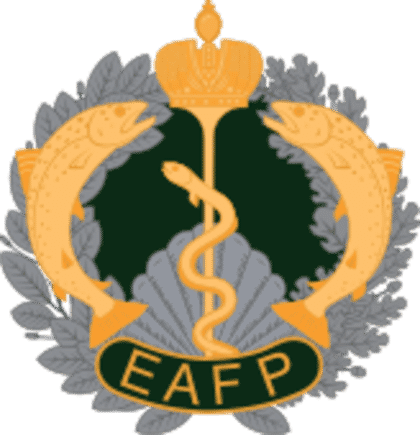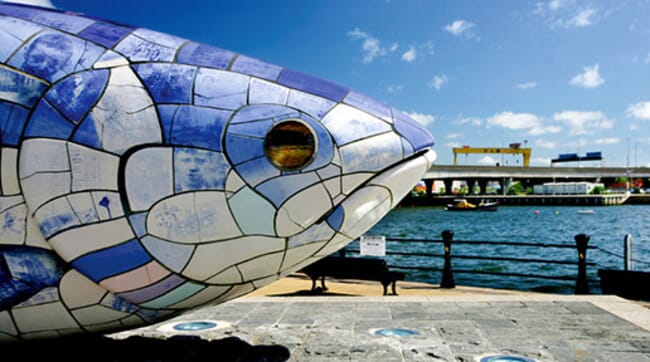As the conference approaches, The Fish Site spoke to Marian McLoughlin, veterinarian with the Fish Vet Group (FVG), chair of local organising committee, and native of Belfast, about the significance of the event.
What excites you most about the conference?
That over 500 people from 43 countries are coming to Belfast for an international conference on fish and shellfish disease. I am very proud of my city and want others to see it in a positive light and get an opportunity to experience our friendly welcome, wonderful food and the hidden natural beauty of our countryside.

What’s the scale of the aquaculture industry in Northern Ireland and do you think the event will help raise its profile?
We have a very small aquaculture industry, with just one organic salmon producing company, several involved in rainbow trout production, some shellfish farming and a wild eel fishery.
Despite this, the country made a lasting mark on the salmonid sector 25 years ago, when a team of veterinary scientists from the Northern Ireland Department of Agriculture, Veterinary Sciences Division (now a division of Agri-food and Biosciences Institute (AFBI www.afbini.gov.uk) discovered the cause of pancreas disease (PD) in farmed Atlantic salmon. It had been one of the salmon sector’s most economically damaging diseases in late 20th and early 21st centuries and this was ground-breaking research. Since then there have been over 200 publications on PD and salmonid alphavirus, the causative agent. Our research also resulted in the production of a PD vaccine which has significantly reduced the impact of this disease across the European salmon industry.
What audience is the conference aimed at/most useful for?
It’s relevant for a wide range of researchers, fish diagnosticians and pathologists, academics, pharmaceutical and nutrition companies and PhD students, the next generation of fish health specialists.
How has the uptake been so far – both in terms of participation and attendance?
As well as over 500 delegates, there will be 212 oral presentations and 237 posters. The four keynote speakers are Isabell Arzul (bivalves & crustaceans), Frank Nilsen (sea lice), Olga Haenen (histopathlogy & toxicology) and Geert Wiegertjes (fish immunology) – an international line-up and all leaders in their fields.

How is the event structured?
The conference runs from 4th -7th September, but it’s bookended by a fish histopathology workshop on the 3rd and a study tour - which includes a visit to the River Bush salmon research station and a visit to The Giant’s Causeway - on the 8th. In the main part of the conference addresses from keynote speakers are proceeded by three parallel sessions. AFBI, the host institute, will provide a welcome reception on the 4th; the City of Belfast, a significant sponsor of the conference, is holding reception in city hall on the 5th; and the formal Gala dinner will be in the leading visitor attraction the Titanic Experience.
Is the FVG sponsoring the event?
We are sponsoring it in kind, as I’ll be using the Aperio digital slide system for the histopathology workshop on the fish kidney. This negates the need for all participants to have individual microscopes, which has allowed us to expand the workshop capacity to over 60 people. It’s an example of FVG leading the way in digital fish histopathology. We have substantial sponsorship from the City of Belfast, leading pharmaceutical and fish feed companies, which is essential for the success of the conference.
What fish species and pathological threats are due to be covered in the greatest detail?
As a major international fish health conference it will address fish and shellfish disease problems across many animal species, which is why it is such an important global event for fish health researchers and practitioners. Sea lice, gill health issues and emerging diseases are topics of most relevant to fish health specialists in the UK. Emerging bivalve diseases are also going to feature prominently, but – overall – it is a global conference and will highlight a variety of species and problems.

